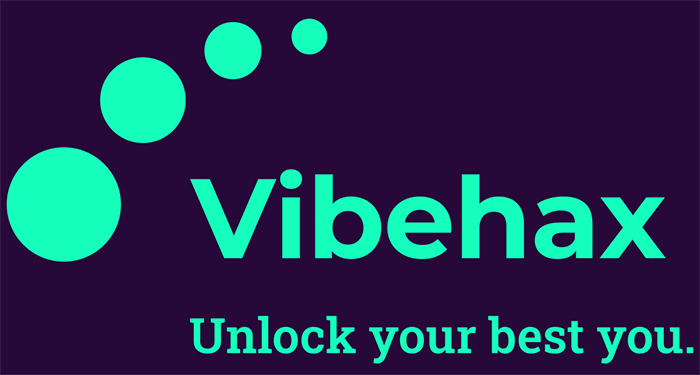Introduction: The human mind is a remarkable instrument, capable of processing vast amounts of information and shaping our perception of the world around us. One of the most powerful aspects of our cognitive abilities is our capacity to focus our attention. This essay explores the personal development theory that posits we experience in our lives what we focus on the most. This concept, often summarized by phrases like “what you focus on expands” or “energy flows where attention goes,” has profound implications for personal growth, success, and overall life satisfaction.
The Mechanics of Focus: At its core, the theory of focus and experience is rooted in the way our brains process information. The human brain is constantly bombarded with sensory input, receiving an estimated 11 million bits of information per second. However, our conscious mind can only process about 50 bits per second. This vast disparity means that our brain must selectively filter information, deciding what to bring into our conscious awareness and what to discard or relegate to the subconscious.
This filtering process is heavily influenced by what we choose to focus on. When we consistently direct our attention to specific thoughts, ideas, or goals, we are essentially training our brain’s reticular activating system (RAS) to prioritize related information. The RAS acts as a gatekeeper, determining which stimuli from our environment deserve our conscious attention.
For example, if someone decides to focus on purchasing a particular model of car, they may suddenly start noticing that car everywhere they go. The car didn’t suddenly become more prevalent; rather, their focus has primed their brain to notice and prioritize information related to that specific vehicle.
The Self-Fulfilling Nature of Focus: The power of focus extends beyond mere observation; it can actually shape our reality through a self-fulfilling prophecy mechanism. When we consistently focus on something, whether positive or negative, we tend to act in ways that make that focus a reality.
If an individual focuses on opportunities for growth and success, they are more likely to notice and act upon such opportunities when they arise. Conversely, if someone constantly dwells on their limitations and potential for failure, they may inadvertently create situations that reinforce those beliefs.
This self-fulfilling aspect of focus is closely tied to the concept of cognitive bias, particularly confirmation bias. We tend to seek out information that confirms our existing beliefs and expectations, while overlooking or dismissing contradictory evidence. By focusing on specific outcomes or possibilities, we unconsciously filter our experiences to align with those expectations.
The Role of Emotion and Motivation: The theory of focus and experience is intrinsically linked to our emotional states and motivational drives. What we choose to focus on often has a strong emotional component, and these emotions can significantly influence our behaviors and decision-making processes.
Positive focus, accompanied by emotions like enthusiasm, hope, and determination, can fuel motivation and persistence in the face of challenges. This emotional state can lead to increased creativity, problem-solving abilities, and resilience, all of which contribute to achieving desired outcomes.
Conversely, a negative focus, associated with emotions like fear, anxiety, or pessimism, can lead to self-sabotaging behaviors, decreased motivation, and a tendency to give up in the face of obstacles. This negative emotional state can create a cycle of self-fulfilling negativity, where anticipated problems become real through our actions and inactions.
Practical Applications in Personal Development: Understanding the power of focus provides a valuable tool for personal growth and self-improvement. By consciously directing our attention towards positive goals, desired outcomes, and constructive thoughts, we can significantly influence our experiences and achievements.
- Goal Setting and Visualization: By clearly defining our goals and regularly visualizing their achievement, we prime our minds to recognize opportunities and take actions aligned with those objectives.
- Positive Affirmations: Regular use of positive affirmations can help redirect our focus from limiting beliefs to empowering ones, gradually reshaping our self-perception and behaviors.
- Mindfulness and Meditation: These practices can help us become more aware of our thought patterns and consciously choose where to direct our focus.
- Gratitude Practice: Regularly focusing on things we’re grateful for can shift our attention to positive aspects of our lives, leading to increased overall life satisfaction.
- Reframing Negative Experiences: By consciously choosing to find lessons or opportunities for growth in challenging situations, we can transform potentially negative experiences into catalysts for personal development.
Challenges and Limitations: While the theory of focus and experience offers powerful insights for personal development, it’s important to acknowledge its limitations and potential pitfalls. Taken to an extreme, an overly rigid focus can lead to tunnel vision, causing us to miss important information or opportunities outside our narrow field of attention.
Additionally, the theory should not be misconstrued as a form of magical thinking. Simply focusing on something does not guarantee its manifestation in reality. External factors, societal structures, and random chance all play roles in shaping our experiences. The power of focus lies in how it influences our perceptions, decisions, and actions within the context of these broader factors.
It’s also crucial to maintain a balanced perspective. While focusing on positive outcomes is generally beneficial, it’s equally important to acknowledge and address real challenges and negative aspects of our lives. Ignoring problems or difficulties in favor of a solely positive focus can lead to denial and lack of necessary action.
Conclusion: The personal development theory that we experience in our lives what we focus on the most offers a compelling framework for understanding the relationship between our thoughts, perceptions, and experiences. By recognizing the power of focus, we can harness this cognitive tool to shape our reality in positive and constructive ways.
This theory underscores the importance of mindful attention and conscious choice in directing our thoughts and actions. It empowers individuals to take an active role in their personal growth and life experiences, rather than feeling at the mercy of external circumstances.
Ultimately, the power of focus reminds us that while we may not have control over every aspect of our lives, we do have significant influence over how we perceive and interact with the world around us. By choosing to focus on growth, opportunities, and positive outcomes, we can create a self-reinforcing cycle of personal development and achievement.
As we navigate the complexities of life, let us remember that our focus is not just a passive observer of our experiences, but an active participant in creating them. By harnessing this power, we can move towards realizing our full potential and creating lives of purpose, fulfillment, and joy.



